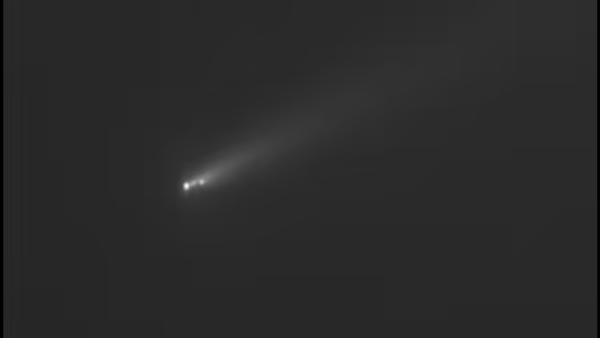
The recently discovered comet C/2025 K1 (ATLAS) has dramatically changed course—literally. First spotted in May by astronomers at the Asteroid Terrestrial-impact Last Alert System, the comet was believed to have survived its closest approach to the sun on 8 October, when it passed at a distance of about 31 million miles (50 million kilometres).
This approach placed it four times closer to the sun than the well-known interstellar comet 3I/ATLAS, although the two are un despite being detected by the same telescope network. But fresh observations from astronomer Gianluca Masi in Manciano, Italy, show that Comet K1 did not make it through unscathed.
During its solar passage, the comet succumbed to extreme gravitational forces and fragmented, leaving behind a spreading cloud of debris.
“Several parts (sub-nuclei or clouds of debris) are visible, also a plume just below the leading (the first from the left) fragment,” Masi, founder of The Virtual Telescope Project and an astronomer at the Astronomical Observatory of Campo Catino, said in an update.
The breakup followed a striking brightening event around perihelion, when the comet shifted from its usual greenish glow—caused by diatomic carbon fluorescing in sunlight—to an unexpected golden hue. Scientists are still unsure why, although some believe it may reflect a lack of carbon-bearing molecules in the comet’s coma, the surrounding cloud of ice, dust, and gas.
For sky-watchers hoping to spot what remains, the fragments of C/2025 K1 are currently visible in the constellation Leo at a magnitude of 9.9. This makes the comet far too faint for the naked eye but observable through a mid-range telescope or strong stargazing binoculars.
The surviving debris will make its closest approach to Earth on 25 November, passing at around 37 million miles (60 million kilometres)—roughly half the average Earth–Sun distance.